
Mini Rex
Facts at a glance!
Weight: 3 to 4.5 pounds
ARBA Accepted Colors: So many options!
- Agouti: Castor, Chinchilla, Opal, Lynx, and Red
- Tan Patterned: Otter (Black, Blue, Chocolate, Lilac), and Silver Marten (Black, Blue, Chocolate, Lilac)
- Self: Black, Blue, Chocolate, and Lilac
- Shaded: Seal, Sable Point, Smoked Pearl, and Tortoise
- Other: Tricolor, Himalayan, Ruby-Eyed White, Blue-Eyed White, Broken (any variety)
Introduction
With its plush fur, compact size, and friendly disposition, the Mini Rex has risen in popularity as a favorite among rabbit enthusiasts!
In this breed spotlight, we’ll explore the origins, characteristics, care requirements, and personality traits of the Mini Rex rabbit.
History and Origin
The Mini Rex rabbit breed has a relatively short but fascinating history. It traces its origins back to the United States in the late 20th century. In 1984, a breeder named Monna Berryhill, from Texas, developed the Mini Rex by selectively breeding standard Rex rabbits to achieve a smaller size. The goal was to create a compact rabbit with the distinctive velvety fur of the Rex breed!
The Rex rabbit itself had been developed in France in the early 20th century, prized for its dense, plush coat of fur. The mutation responsible for the unique Rex coat, which lacks guard hairs and thus feels incredibly soft and velvety to the touch, was originally found in a litter of wild rabbits. This mutation was then selectively bred to create the Rex breed as we know it today.
Monna Berryhill’s efforts to miniaturize the Rex rabbit resulted in the creation of the Mini Rex, which was officially recognized by the American Rabbit Breeders Association (ARBA) in 1988. Since then, the Mini Rex has gained popularity not only in the United States but also in other countries around the world!
Personality
Mini rex are known to be sweet with mild personalities. They are common choices for pets and can make great companion animals!
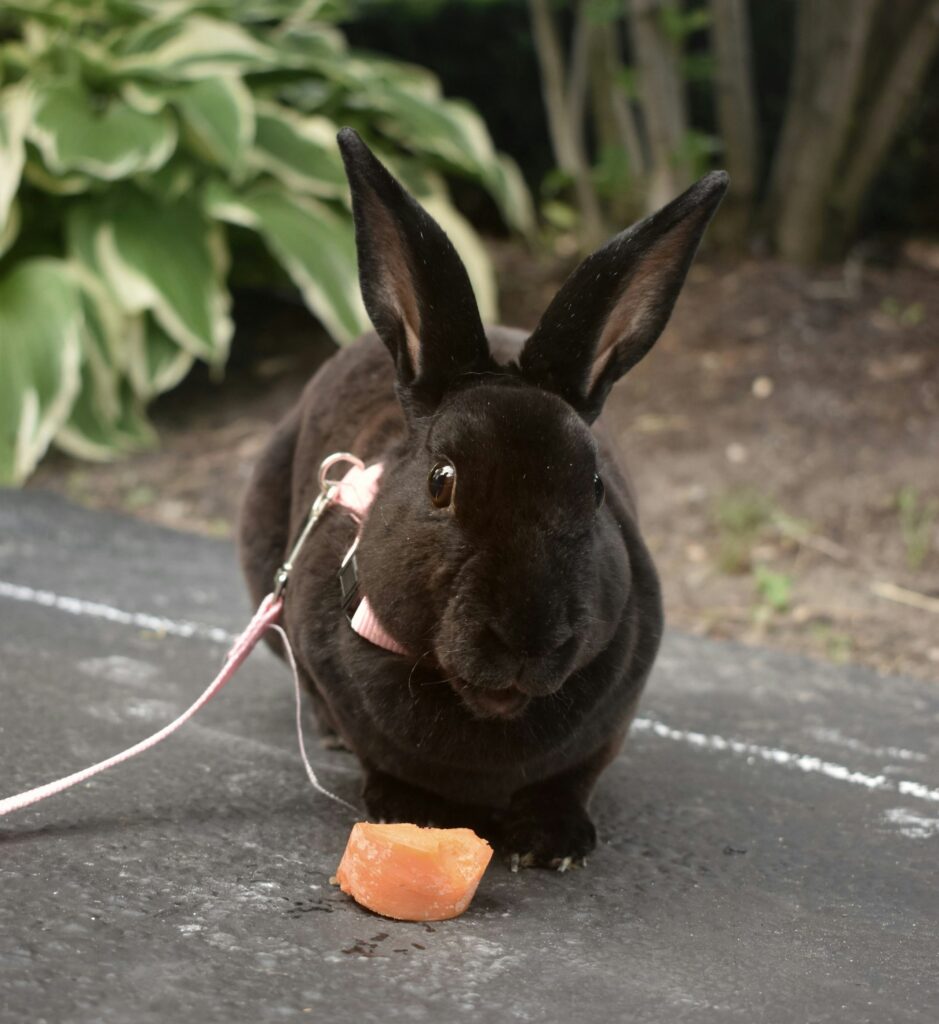
Physical Characteristics
The Mini Rex is known for its compact size and distinctive fur. It typically weighs between 3.5 to 4.5 pounds (1.6 to 2.0 kilograms), making it smaller than the standard Rex rabbit. Despite its smaller stature, the Mini Rex possesses a sturdy build with well-rounded hindquarters and a relatively short body.
What truly sets the Mini Rex apart is its luxurious coat of fur! The fur is plush, dense, and incredibly soft to the touch, thanks to the absence of guard hairs. This gives the rex coat a velvety texture that is unlike any other! The fur lies close to the body and has a uniform length across the entire coat.
Mini Rex rabbits come in a wide variety of colors and patterns, including solid colors, broken patterns, and shaded varieties. Some popular color options include castor, chinchilla, black, blue, chocolate, and red. The ARBA recognizes numerous color varieties for exhibition purposes, making the Mini Rex a breed with great diversity in appearance!
In addition to their striking fur, Mini Rex rabbits have relatively short ears that stand erect, giving them an alert and curious expression. Their eyes are large, bright, and expressive, adding to their charm.
Care and Maintenance
Caring for a Mini Rex rabbit involves providing an environment that meets both their physical and mental needs. Here are some essential care requirements to keep in mind:
Housing: Mini Rex rabbits can be housed indoors or outdoors, depending on climate and preference. Indoors, they should have a spacious cage or enclosure that allows them to move around comfortably. Ensure that the enclosure has a solid bottom to protect their sensitive feet. Outdoor enclosures should be secure and protected from predators, with adequate shelter from the elements.
Diet: A balanced diet is crucial for the health and well-being of Mini Rex rabbits. Their diet should consist primarily of high-quality hay, such as timothy hay, supplemented high quality rabbit pellets and fresh vegetables in small amounts. Fresh water should be available at all times, provided in a clean water bottle or dish.
Grooming: Mini rex do not requite much grooming compared to other breeds such as Angoras. Brushing them gently with a soft-bristled brush a few times a week can help remove loose fur. Additionally, you should be sure to trim their toenails regularly, every 1 to 2 months. Check out our nail trimming guide here if you are new to trimming toenails!
Exercise: Like all rabbits, Mini Rex rabbits are active animals that require regular exercise to stay healthy and happy. Providing opportunities for daily exercise outside of their enclosure is essential. This can include supervised playtime in a rabbit-proofed area of the home or a secure outdoor space.
Veterinary Care: Regular veterinary check-ups are great for monitoring the health of Mini Rex rabbits and addressing any potential medical issues promptly. They will also be able to provide any necessary vaccinations or spay/neuters.
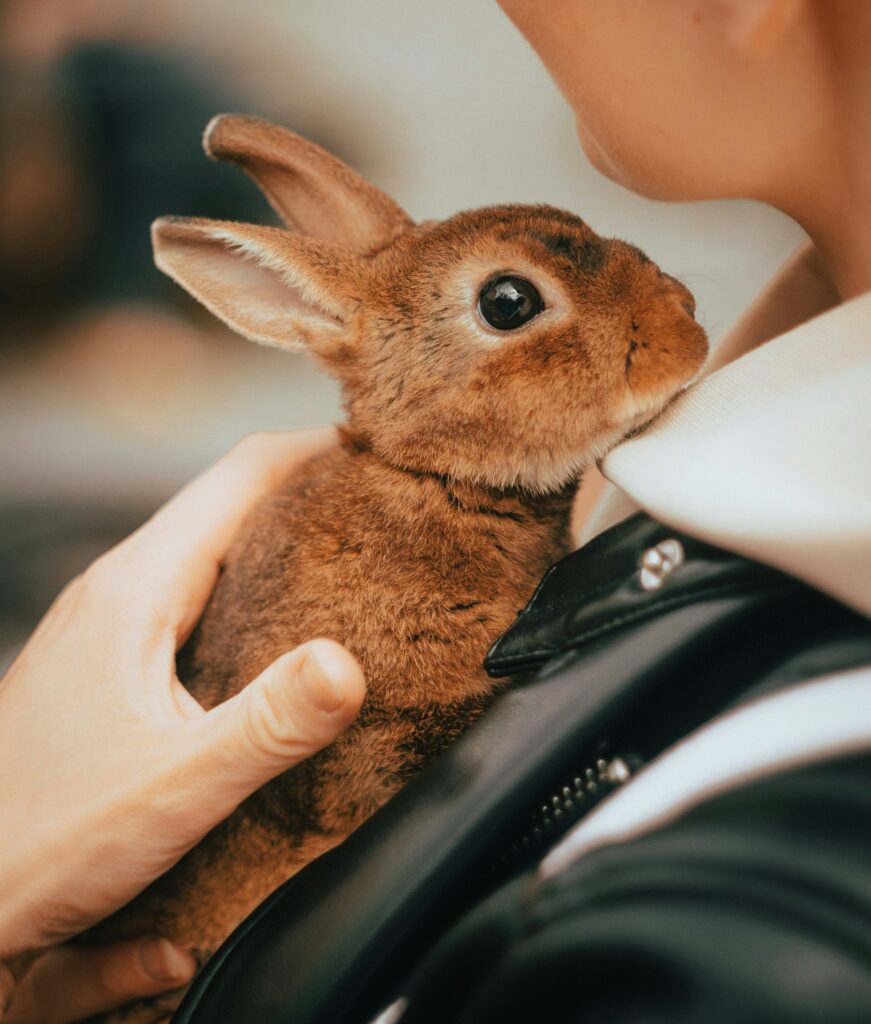
Health Considerations
Mini Rex are generally very healthy, avoiding many of the genetic conditions that can cause issues for other breeds. Even so, there are still some general health considerations to keep in mind, as well as one breed specific one (sore hocks).
- Sore Hocks: Mini Rex, Rex, and Velveteen Lop rabbits are especially susceptible to a condition known as sore hocks. This is when the bottoms of a rabbit’s feet become sore and inflamed. These sore feet can lose fur (exacerbating the problem), begin to bleed, and can become infected. A predisposition to sore hocks can be genetic, but it is most commonly seen when a rabbit spends a great deal of time resting on a wire cage bottom, or to a lesser extent when a rabbit often rests on a solid, hard surface. Mini Rex, Rex, and Velveteen Lops are especially susceptible to sore hocks because the fur on the bottoms of their feet is shorter than other rabbits.
- Gastrointestinal Stasis: This condition occurs when a rabbit’s digestive system slows down or stops functioning properly, often due to a poor diet, lack of exercise, or stress. Signs include reduced appetite, lethargy, and a decrease in fecal output. Prompt veterinary attention is crucial to prevent complications.
- Obesity: Mini Rex rabbits can become overweight if overfed or given too many high-calorie treats. Monitor their diet closely and ensure they receive regular exercise to maintain a healthy weight!
- Respiratory Issues: Like all rabbits, Mini Rex are susceptible to respiratory infections, especially if kept in damp or poorly ventilated environments. Keep their living area clean and dry, and seek veterinary care if you notice signs of respiratory distress such as sneezing or labored breathing.
Conclusion
Mini Rex are known for their compact size, luxurious fur, and friendly disposition. Here at Hutch Happiness, they are actually one of our favorite breeds!
Whether as a beloved pet or a show animal, the Mini Rex captivates with its unique combination of beauty, charm, and personality. With proper care and attention, these rabbits can bring joy and companionship to your household for many years to come!
Looking for similar breeds?
Check these out!
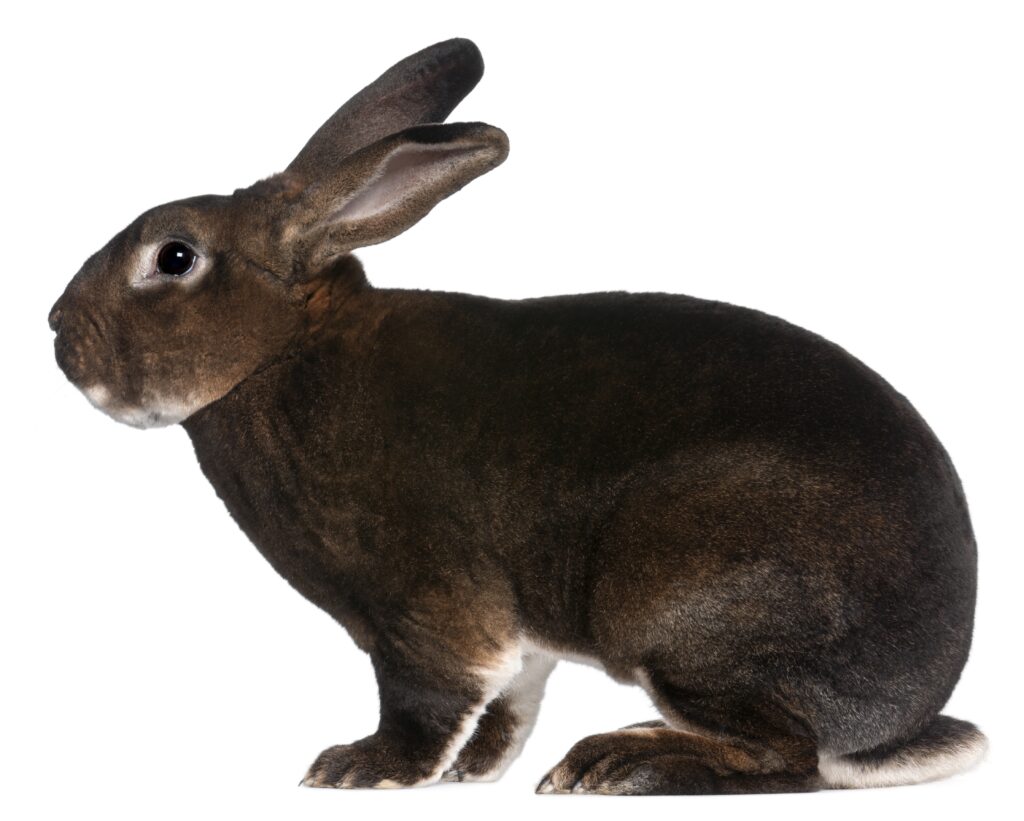
Rex
The Mini Rex is basically a smaller version of the Rex!
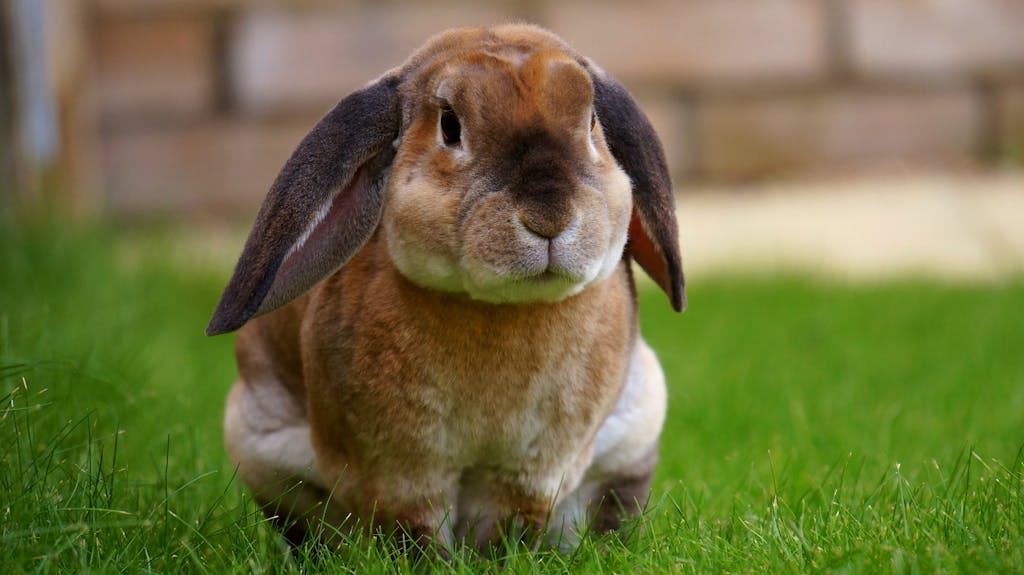
velveteen lop
The Velveteen Lop has the same plush coat as a Mini Rex.
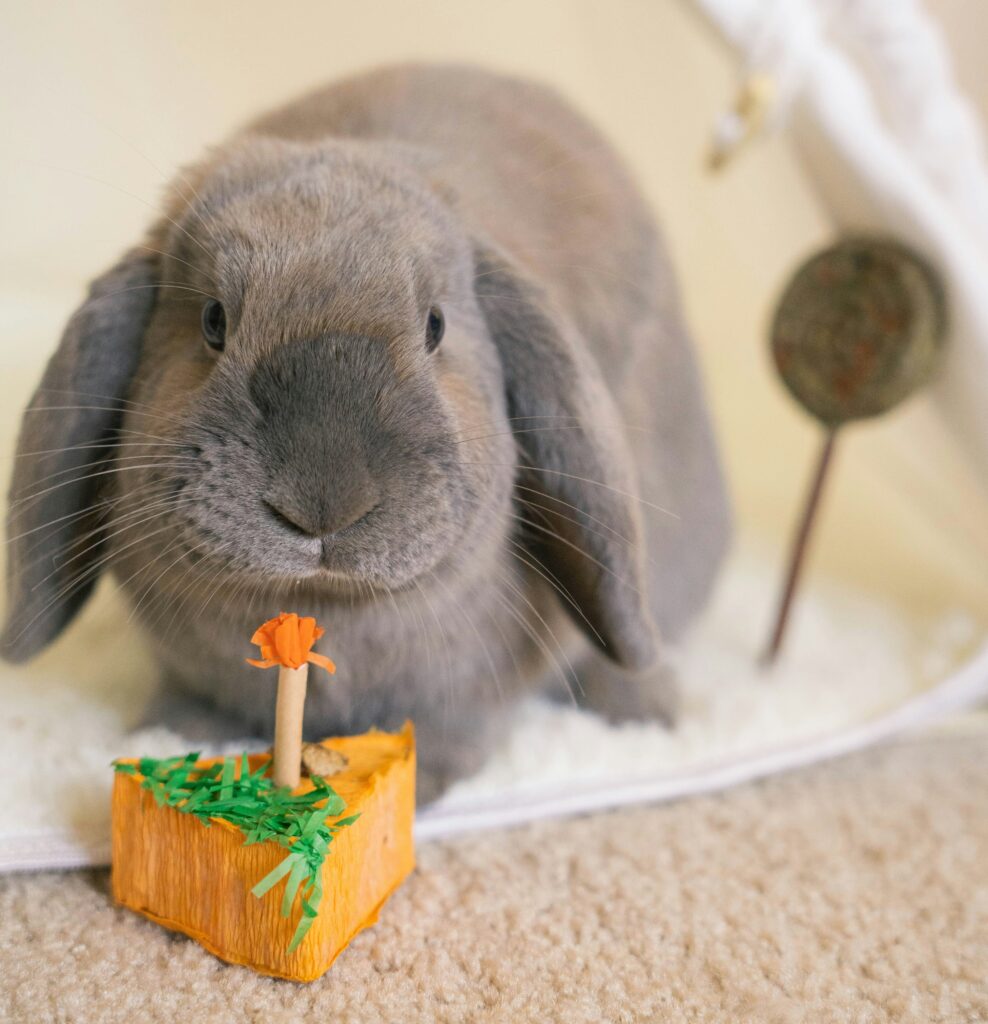
Mini lop
The Mini Lop is a similar size to the Mini Rex and has a similar easygoing personality.
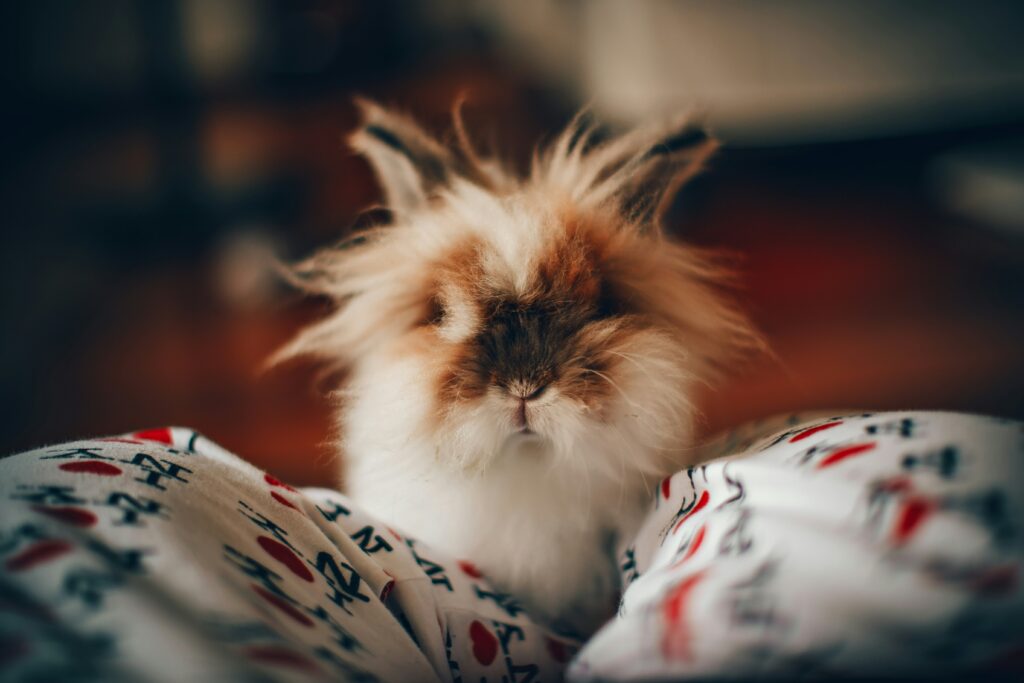
Lionhead
Lionheads are another unique breed. They are small and popular as pets, like Mini Rex.
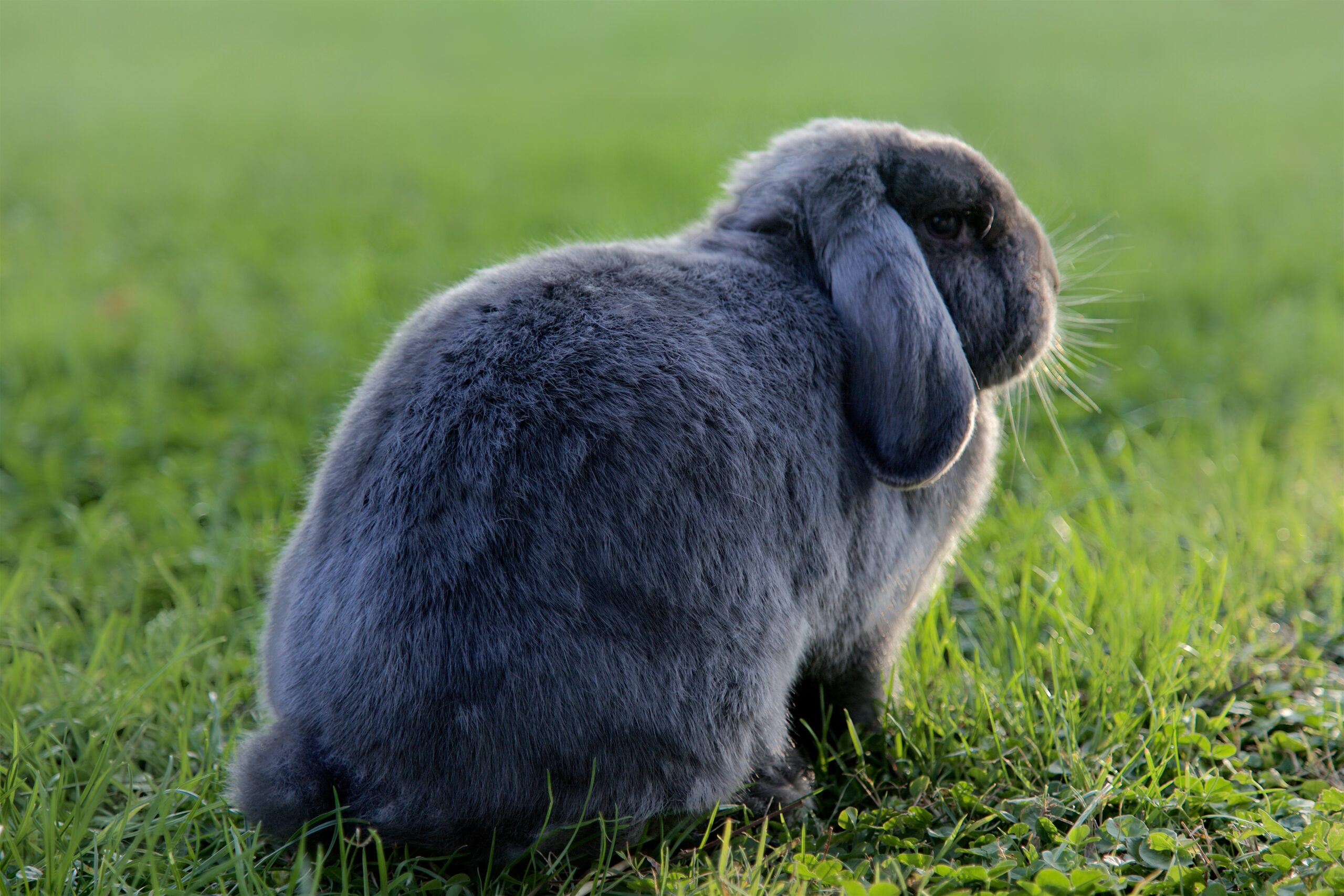
Loppy Land Rabbitry
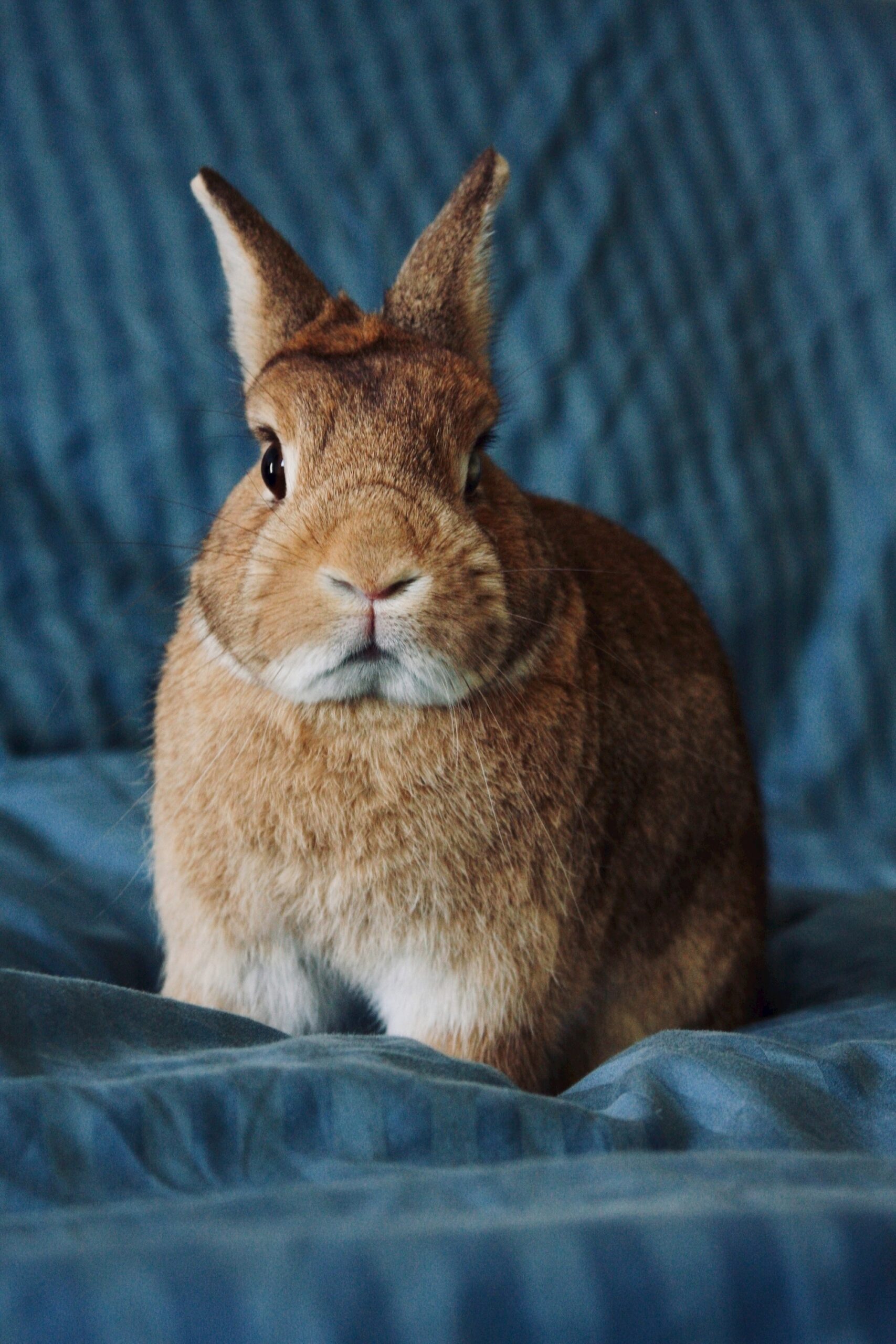
Hoppy Harbor Rabbitry
See a Picture Missing?
Here at Hutch Happiness we want to showcase YOUR rabbits! If you have a photo of a rabbit you would like to share, reach out to me at Emily@hutchhappiness.com. Along with your rabbit photo we are happy to provide a link to your rabbitry website if available.
